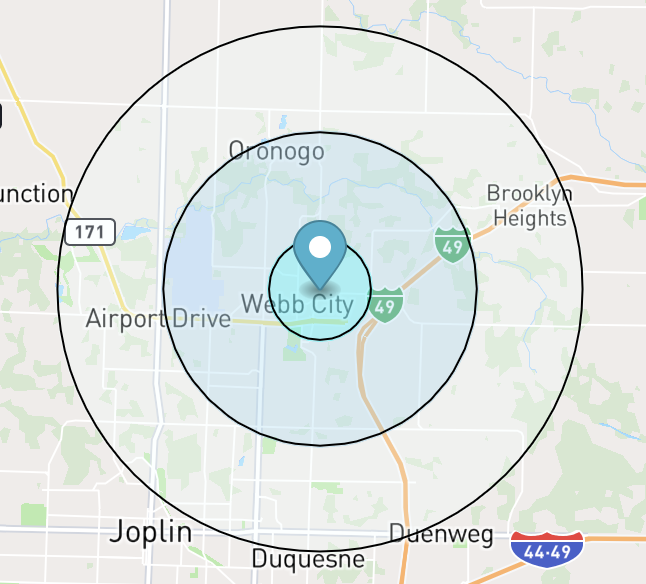
Purchase your $199 Dental Practice Location Site Report
Dental Practice 1 3 5 Mile Radius Demographics & Market Data Available
Select your business or a competitor below to unlock site selection insights.
- Population Demographics included 5 and 10 year forecasts.
- Household Incomes
- Weekly Per Capita Expenditures across relevant dental practice categories
- Competitive Business Density (aka, how many similar businesses in the location)
- Other important factors to your industry
Dental Practice Competitive Intelligence for District of Columbia
View a list of the local dental practice competition and click on location name for more details regarding estimated visitor traffic, population demographics, popular visit times, and more. Includes a 1, 3, 5-mile site selection data analytics report for each dental practice location.
| Dental Practice Locations | Affiliation | Services | Report | Popularity |
|---|---|---|---|---|
|
3925 Minnesota Ave NE |
Dental Dreams | Dental Hygienists, Endodontists, Pediatric Dentists, Prosthodontists, Teeth Whitening, General Dentistry | View |
|
|
6428 Georgia Ave NW |
Dental Dreams | Dental Hygienists, Endodontists, Pediatric Dentists, Prosthodontists, Teeth Whitening, General Dentistry | View |
|
Explore Dental Practice Locations by County in District of Columbia
Unlock population and market insights by exploring the best District of Columbia's county-level dental practice site locations.
Ideal Dental Practice Counties
List of the Best Dental Practice Locations by County in District of Columbia
Dental Practice Site Selection Considerations for District of Columbia

Since 2014, Marc Smookler, Kevin James, and the Plotr Team have been empowering business operators and owners with location data insights. They are the geo-intelligence experts.
The income factors of the location play a crucial role in the success of dental practices in District of Columbia. Understanding and adapting to the income levels and socioeconomic status of the surrounding population is essential for dental practices to thrive in the area.
One important income factor to consider is the average household income of the neighborhood or community. District of Columbia has diverse neighborhoods with varying income levels. By analyzing the average household income, dental practices can align their pricing and services to suit the financial capacity of the local residents. Offering flexible payment options or partnering with insurance providers can also make dental care more accessible to individuals with different income levels.
Another income factor to consider is the presence of employer-sponsored dental insurance. District of Columbia has a robust job market with various industries and employers offering comprehensive benefits packages. Dental practices located near areas with a concentration of companies that provide dental insurance coverage can attract a larger patient base. Collaborating with local employers to offer in-network services or discounts can help capture this segment of the population.
Analyzing the presence of low-income assistance programs is also important. District of Columbia has initiatives and programs that support access to healthcare services for low-income individuals and families. Dental practices can actively participate in these programs or partner with community organizations to provide discounted or free dental care to individuals who qualify. This demonstrates a commitment to the community and can help attract patients who may not have access to regular dental services otherwise.
The distribution of wealth and income disparity within the community is another income factor to consider. District of Columbia, like many locations, has areas with varying levels of affluence and socioeconomic disparities. Dental practices can choose locations that align with their target market and service offerings. For example, locating in an affluent neighborhood may allow for a focus on high-end cosmetic dentistry, while practices in more economically diverse areas may need to offer a range of services to cater to a broader income spectrum.
Finally, the demand for specialized services can be influenced by income factors. High-income neighborhoods may have a greater demand for cosmetic dentistry or advanced dental procedures, while areas with lower income levels may require more emphasis on preventive care and basic dental treatments. Understanding the income factors and tailoring the services offered accordingly can help dental practices meet the specific needs of the local population and establish a strong reputation within the community.
